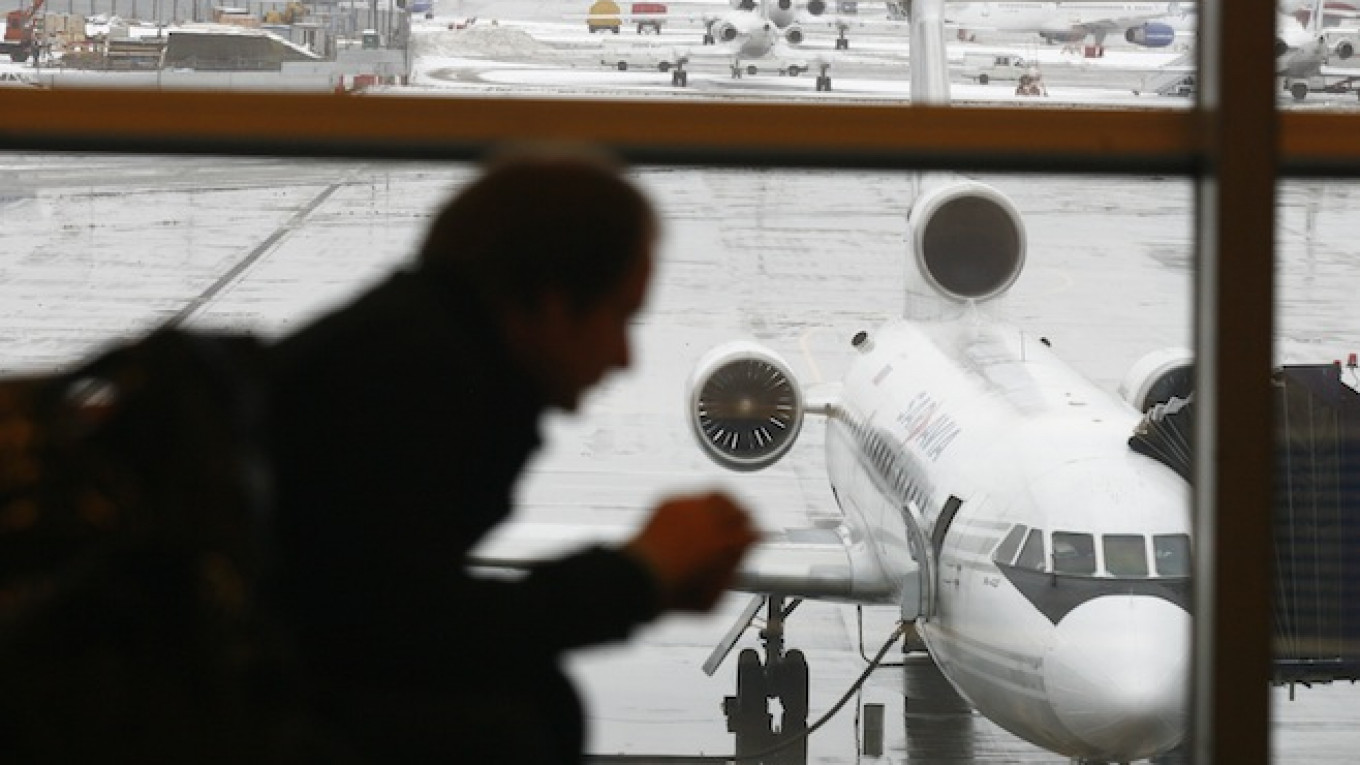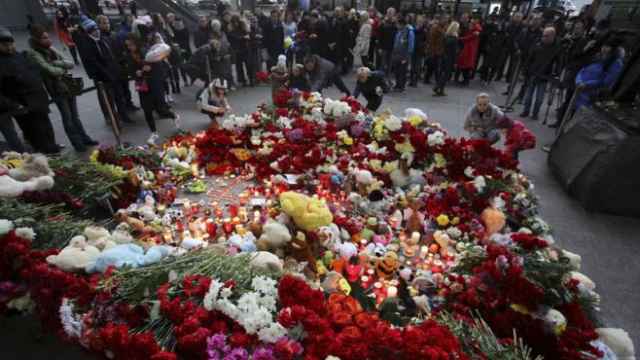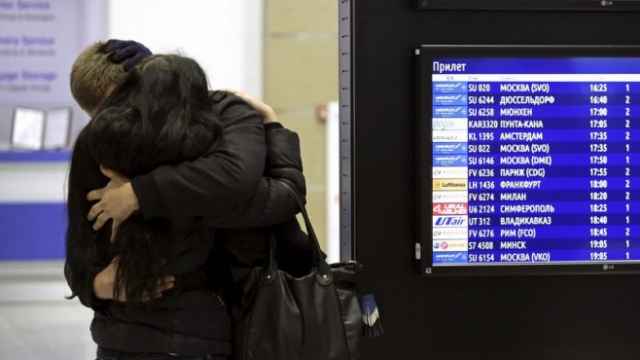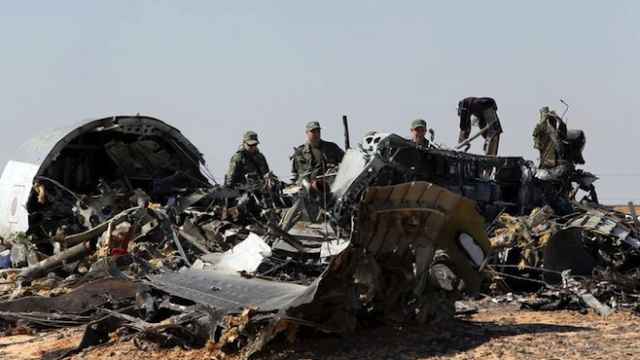Russia's small charter airlines are taking a beating from lawmakers and frightened tourists, as anxious travelers cancel vacation packages and members of the State Duma propose restrictive legislation following Russia's worst civilian air disaster.
Two hundred and twenty-four people were killed when an 18-year-old Airbus A321 passenger jet operated under the brand MetroJet by Kogalymavia airlines crashed in Egypt's Sinai Peninsula on Saturday as it carried vacationers back to Russia.
In the wake of the crash, tourists have been rushing to cancel their planned vacations to Egypt, one of the most popular destinations for Russian tourists.
Sales of package tours fell by 30 to 50 percent on Saturday, and further still on Monday, Irina Tyurina, a spokeswoman for Russia's Tourism Industry Union, told the RBC news agency.
The Moskva local news agency reported Monday that Kogalymavia had seen 20 percent of bookings canceled since the crash two days earlier, citing company spokeswoman Oksana Golovina.
Tyurina said that although travel agencies are swamped with calls from concerned people, it is still not clear how long the panic will last: The ultimate impact on the tourism industry depends largely on what is discovered to have caused the crash, and media coverage.
"If we are talking about some technical problem, or even a terrorist attack or natural disaster, usually there is a natural emotional reaction that lasts about two weeks," she told RBC.
Deputies in the State Duma — the lower house of parliament — responded to the crash with legislative proposals ranging from the nationalization of all Russian airlines to restricting the number of airlines in the country to two or three and restricting the operation of old airplanes, though they did not specify an age limit.
The slump in demand and restrictive proposals are an additional blow for Russia's small regional and charter airlines, many of which are already struggling to stay afloat amid the ongoing economic crisis.
These airlines have been among those most likely to lose aircraft to crashes during the past 20 years. Saturday's crash was Kogalymavia's second fatal incident since 2011.
According to data compiled by the Aviation Safety Network, a website devoted to international flight safety, Russia has experienced about 70 fatal air accidents in the last two decades.
In Russia, one passenger died per 1.2 million as of 2014, compared with the world average of 1 per 4.7 million on commercial airlines, according to the International Air Transport Association (IATA).
The former Soviet Union is the most unsafe region in the world for air travel, with crashes almost four times more likely to take place than the global average, according to the IATA.
Contact the author at [email protected]
A Message from The Moscow Times:
Dear readers,
We are facing unprecedented challenges. Russia's Prosecutor General's Office has designated The Moscow Times as an "undesirable" organization, criminalizing our work and putting our staff at risk of prosecution. This follows our earlier unjust labeling as a "foreign agent."
These actions are direct attempts to silence independent journalism in Russia. The authorities claim our work "discredits the decisions of the Russian leadership." We see things differently: we strive to provide accurate, unbiased reporting on Russia.
We, the journalists of The Moscow Times, refuse to be silenced. But to continue our work, we need your help.
Your support, no matter how small, makes a world of difference. If you can, please support us monthly starting from just $2. It's quick to set up, and every contribution makes a significant impact.
By supporting The Moscow Times, you're defending open, independent journalism in the face of repression. Thank you for standing with us.
Remind me later.






